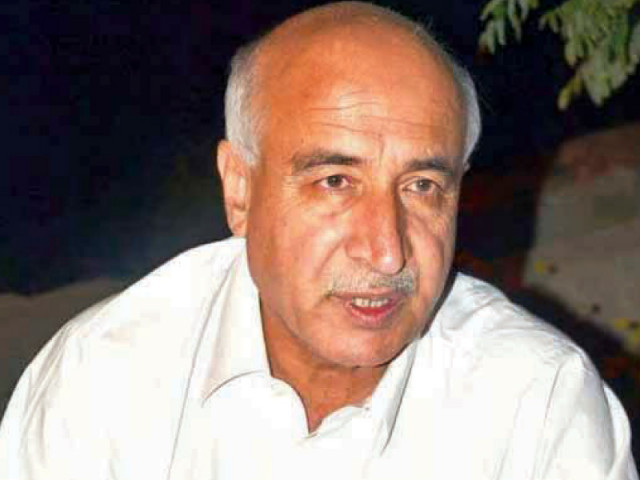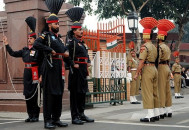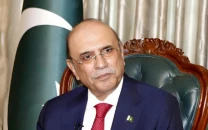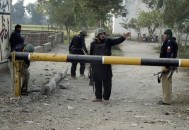Devolution under 18th Amendment: Who deals with exploration now?
Confusion prevails due to lack of subordinate legislation.

Dr Abdul Malik Baloch. PHOTO: FILE
The much-lauded 18th Amendment seems to have fallen short in some areas, which is hampering the devolution of institutions to the provinces – the core attribute of the legislation.
The problem lies mainly in the devolution of the Federal Ministry of Petroleum and Natural Resources, officials and constitutional lawyers told The Express Tribune.
According to the amendment, passed by the Parliament in April 2010, the oil and gas producing provinces are entitled to have 50 per cent ownership on oil and gas and mineral resources in their respective regions. They also have the right to have shares of the income generated from those resources with the federal ministry equally.
However, provincial governments have also not fulfilled their legal and constitutional obligations in making laws, which are necessary for the implementation of the amendment. “Due to the absence of the subordinate legislation, both the federal and provincial ministries have been claiming authority over decisions related to oil and gas exploration,” said former federal law minister Ahmer Bilal Sofi.

He also claimed that the Federal Ministry of Petroleum and Natural Resources has also not taken any interest in making subordinate legislation for the implementation of the amendment despite repeated requests by the provinces, including K-P, he explained.
The Ministry of Petroleum and all the oil and gas producing provinces were mandated to frame rules regarding petroleum concessions under the Petroleum Exploration and Production Policy 2012. “However, there is no progress on the matter,” a senior official of the Khyber-Pakhtunkhwa government, who was among the architects of the 18th Amendment, told The Express Tribune.
The government of K-P had repeatedly asked the Petroleum Ministry to fulfil its legal and constitutional obligations but to no avail. “The ministry had demonstrated a similar attitude when the K-P government demanded the required amendments in the Oil Fields and Mining Act 1948.”

“For us the 18th Amendment is an unfinished piece of legislation as it has no significance without enacting the essentially required subordinate legislation,” the official claimed. This inaction on the part of the ministry to frame the required laws is a breach of provincial autonomy, he alleged.
Meanwhile, the government of Sindh and Balochistan are also not onboard with the petroleum ministry over the interpretation of the 18th amendment vis-à-vis oil and gas petroleum. The Sindh government is claiming its exclusive right in the extension of exploration licences to oil and gas companies, while the Balochistan is all-out demanding the abolition of the petroleum ministry following the 18th Amendment so that it could have provincial autonomy over its resources.
“According to my interpretation of the relevant clause of the 18th amendment, the federal petroleum ministry should have been abolished soon after the amendment was enacted,” Balochistan Chief Minister Dr Abdul Malik Baloch recently said in a media interview. “In its place, there should have been a directorate for facilitating the oil and gas producing provinces.”
A large chunk of Balochistan’s gas and petroleum resources are explored by the Oil and Gas Development Company Limited (OGDCL) and the Pakistan Petroleum Limited (PPL). The ownership of these companies should have been automatically transferred to Balochistan, proportionate to the province’s share in oil and gas production. “But this did not happen. The 18th amendment gives Balochistan much more than that,” the CM demanded.
In his defence, Malik Muhammad Naeem, the petroleum ministry’s additional secretary, said that the provinces are not extending the desired cooperation in framing the rules and regulations. The provincial governments are not attending meetings convened by the ministry to decide the constitutional and legal issues, he said.
The exploration of oil and gas in 50 blocks allotted to national and international oil exploration companies in different provinces about 18 months ago could not begin due to the lack of cooperation by the provinces, he alleged.
Published in The Express Tribune, September 20th, 2013.



















COMMENTS
Comments are moderated and generally will be posted if they are on-topic and not abusive.
For more information, please see our Comments FAQ